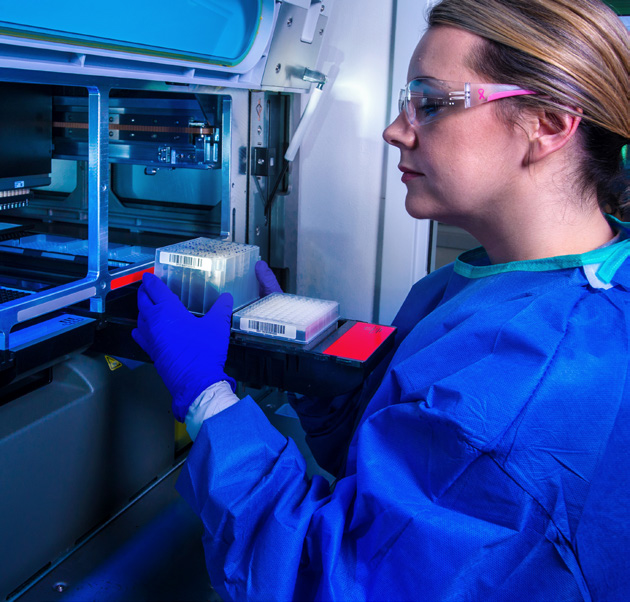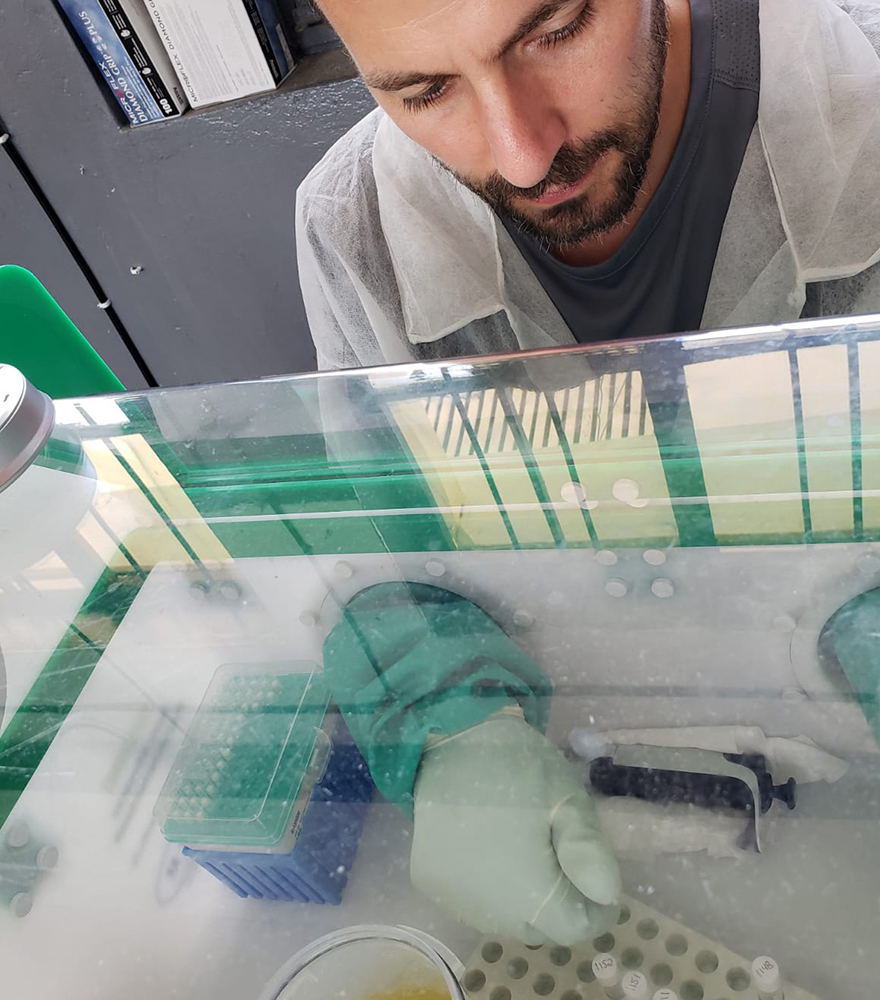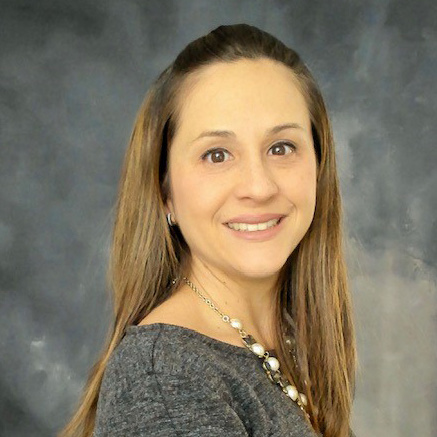Harnessing the power of laboratories
NCEZID labs offer novel solutions to pandemic challenges

To better understand how COVID-19 spreads, NCEZID laboratory scientists used specialized techniques to create different types of antibodies and shared their inventory with researchers, universities, and biotechnology companies to help them develop treatments and improve testing capabilities.
When CDC launched its response to the COVID-19 pandemic in January 2020, NCEZID laboratories quickly went above and beyond their routine workload to provide surge capacity to the agency.
- Early in the response to the pandemic, NCEZID played a primary role in conducting SARS-CoV-2 clinical diagnostic testing. This created a potential model for CDC’s implementation strategy and a framework for future outbreak responses.
- To better understand how COVID-19 spreads, NCEZID laboratory scientists used specialized techniques to create different types of antibodies, which are part of the human immune system and critical to fighting infections. NCEZID experts have shared their inventory of COVID-19 antibodies with researchers, universities, and biotechnology companies to help them develop treatments and better testing capabilities.
- After a COVID-19 nasal swab test is taken, the swab needs to be placed in a special liquid for sterile transport to a testing facility. During the early days of the pandemic, the United States experienced a critical shortage of that liquid, known as viral transport medium. In response, NCEZID scientists created a standard “recipe” on how to make this liquid and shared it on CDC’s website for hospitals and laboratories to use. This resource went viral, and now countless hospitals and labs have used it successfully when normal supply routes could not meet demand.
Island labs fortified after hurricane devastation
After three devastating hurricanes tore through Puerto Rico (PR) and the US Virgin Islands (USVI) in 2017, NCEZID’s Hurricane Recovery Team partnered with their health departments to help restore public health laboratories.
- One of PR’s labs was so damaged by Hurricane Maria that it was unable to do any testing — a dangerous situation after a natural disaster when the risk of infection from spoiled food and contaminated water is high. NCEZID worked with the Association of Public Health Laboratories (APHL) and the PR Department of Health to restore and improve testing capacity. As a result, PR’s Bacteriology Lab is now fully connected to PulseNet, a national surveillance network that detects foodborne disease outbreaks.
- Damage to water quality monitoring systems left fears that drinking water was contaminated. NCEZID’s team partnered with APHL to ensure USVI and PR had access to the training, equipment, and supplies needed to resume microbial and chemical water quality testing.
- In USVI, the Department of Health saw an opportunity to expand their limited testing capabilities as part of the rebuilding process. NCEZID’s team worked with public health officials to develop a workflow for the brand-new modular lab that can now test for 42 intestinal diseases. In 2021, plans to help USVI strengthen their lab procedures will take place virtually.
Ebola diagnostic lab set up in record time

James Graziano using a piece of lab equipment called a “glove box” that CDC flew to DRC for use in the Ebola outbreak response. The glove box allows experts to safely work with patient samples while testing for Ebola.
In September 2020, NCEZID scientists were part of the team deployed to the Democratic Republic of the Congo (DRC) that demonstrated exemplary flexibility and innovation by setting up an Ebola diagnostic laboratory in the remote health zone of Ingende in a matter of days. CDC significantly contributed to ending the outbreak by setting up this much-needed lab in an area with active Ebola transmission. It expanded testing to an area with otherwise limited accessibility, infrastructure, and telecommunications in Equateur Province, which the Ministry of Health and partners eagerly welcomed. The lab introduced diagnostic capacity for Ebola to the area, allowing for results to be received quicker so actions to contain the outbreak could be implemented faster. CDC will continue to provide partners in DRC with training on Ebola diagnostics to help facilitate Ebola survivor programs. CDC will also support future serological studies to better understand Ebola epidemiology and transmission in Equateur Province, including Ingende.

On leading the hurricane response
“Thanks to collaborations with CDC programs and partners, we rebuilt stronger public health labs and trained lab workforce, creating sustainable change.”
Jeniffer Concepcion-Acevedo, Division Hurricane Recovery Lab Lead, NCEZID

